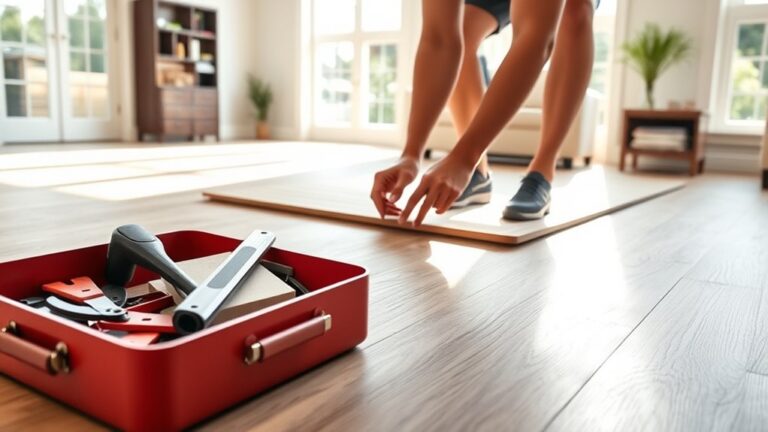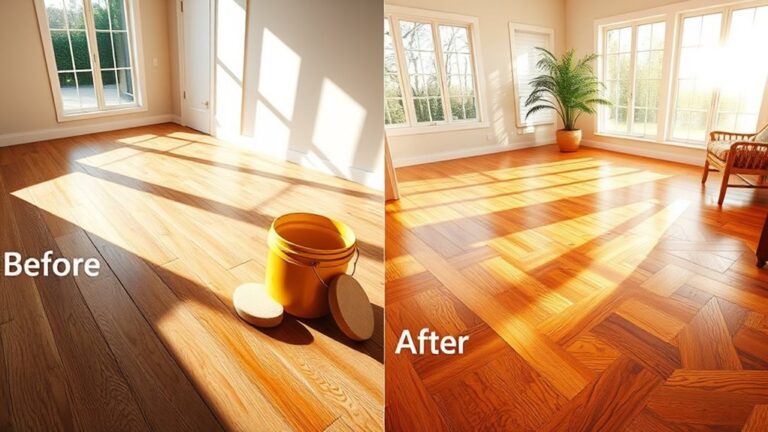Epoxy floors are generally safe for pets, but it is important to consider certain factors such as the type of epoxy used and proper application procedures to ensure their safety. Pets are an integral part of our lives, and creating a safe and comfortable environment for them is paramount.
When it comes to flooring options, epoxy floors are gaining popularity due to their durability and aesthetic appeal. However, pet owners may have concerns about whether epoxy floors are safe for their furry companions. We will explore the safety aspects of epoxy floors for pets, addressing potential risks and providing guidance on creating a pet-friendly epoxy floor.
By understanding the factors that contribute to their safety, pet owners can make informed decisions regarding their flooring choices, ensuring the well-being of their beloved pets.
Understanding Epoxy Floors
Epoxy floors are a popular choice for homeowners due to their durability and versatility. They are made by mixing resin and a hardening agent, creating a strong adhesive that bonds to the floor surface. This chemical reaction forms a tough and seamless coating that is resistant to stains, chemicals, moisture, and wear.
Common uses of epoxy floors in homes include garage floors, basement floors, and workshop floors. They provide a smooth and glossy finish that not only enhances the aesthetic appeal of the space but also makes it easier to clean and maintain.
The benefits of using epoxy floors are numerous. They offer excellent resistance to stains, making them an ideal choice for pet owners. Additionally, epoxy floors are highly durable, long-lasting, and can withstand heavy foot traffic. They are also available in various colors, textures, and patterns, allowing homeowners to customize their flooring according to their style preferences.
| Benefits of using epoxy floors: |
|---|
| 1. Highly durable |
| 2. Resistant to stains, chemicals, and moisture |
| 3. Easy to clean and maintain |
| 4. Versatile in terms of colors, textures, and patterns |
Potential Risks For Pets
Epoxy floors are a popular choice for many homeowners due to their durability and aesthetic appeal. However, it is important to consider the potential risks they may pose to our beloved pets.
The chemical composition of epoxy floors includes resins and hardeners, which can emit hazardous fumes during installation and curing. These fumes may contain harmful volatile organic compounds (VOCs) such as benzene and formaldehyde.
Exposure to these chemicals can have various health hazards for pets, including respiratory issues, allergic reactions, and irritation. Pets with pre-existing respiratory conditions or those with sensitivities may be particularly vulnerable.
Additionally, the impact of epoxy floor fumes can vary depending on factors such as ventilation and exposure duration. Proper ventilation during and after installation is crucial to minimize potential risks.
To ensure the safety of our furry friends, it is important to choose epoxy flooring products that have low VOC content and meet safety standards. Pet owners should also consider alternative flooring options that are safe and pet-friendly, such as natural hardwood or tile floors.
Ensuring Pet Safety With Epoxy Floors
When considering the safety of our beloved pets, it’s vital to take precautionary measures when installing epoxy floors. Epoxy flooring can provide durability and is resistant to stains and scratches, making it an attractive option for pet owners. However, strict adherence to safety guidelines can ensure the well-being of our furry friends.
Firstly, safe alternatives to epoxy floors should be explored. Some pet-friendly flooring options include cork, rubber, or vinyl, which are softer and gentler on pets’ paws. These materials minimize the risk of slips or falls and are more forgiving in case of accidental damage or scratching.
Secondly, proper ventilation and air quality management are crucial to prevent pets from inhaling harmful fumes during the epoxy floor installation process. Ensure that the area is well-ventilated and free from pets until the completion of the installation. In addition, sealing the floor with a protective topcoat can further minimize any potential off-gassing.
By being proactive and implementing these precautions, pet owners can maintain a safe environment for their furry companions without compromising on the benefits that epoxy floors offer.

Frequently Asked Questions For Are Epoxy Floors Safe For Pets
Are Epoxy Floors Ok With Dogs?
Yes, epoxy floors are suitable for dogs. They are durable, resistant to scratches and stains, and easy to clean. This makes them ideal for pet-friendly homes.
What Ruins A Epoxy Floor?
Improper installation, heavy impacts, temperature fluctuations, chemical spills, and UV exposure can ruin an epoxy floor.
Can Epoxy Flooring Be Damaged By Water?
Yes, epoxy flooring can be damaged by water.
Does Epoxy Floor Scratch Easy?
Epoxy floors are not easily scratched due to their strong and durable nature. They can withstand heavy foot traffic, furniture movement, and even the impact of dropped objects without getting scratched easily.
Conclusion
To ensure the safety of your furry friends, it is important to consider the potential risks of epoxy floors. While epoxy is generally a durable and easy-to-clean option, it can pose some hazards to pets. From paw pad abrasions to chemical exposure, it’s vital to take necessary precautions.
Regularly inspecting and maintaining the epoxy floors, keeping pet nails well-trimmed, and providing a softer surface for paws are essential steps in safeguarding your beloved companions. Ultimately, understanding the potential risks and taking proactive measures will help create a pet-friendly environment on epoxy floors.




